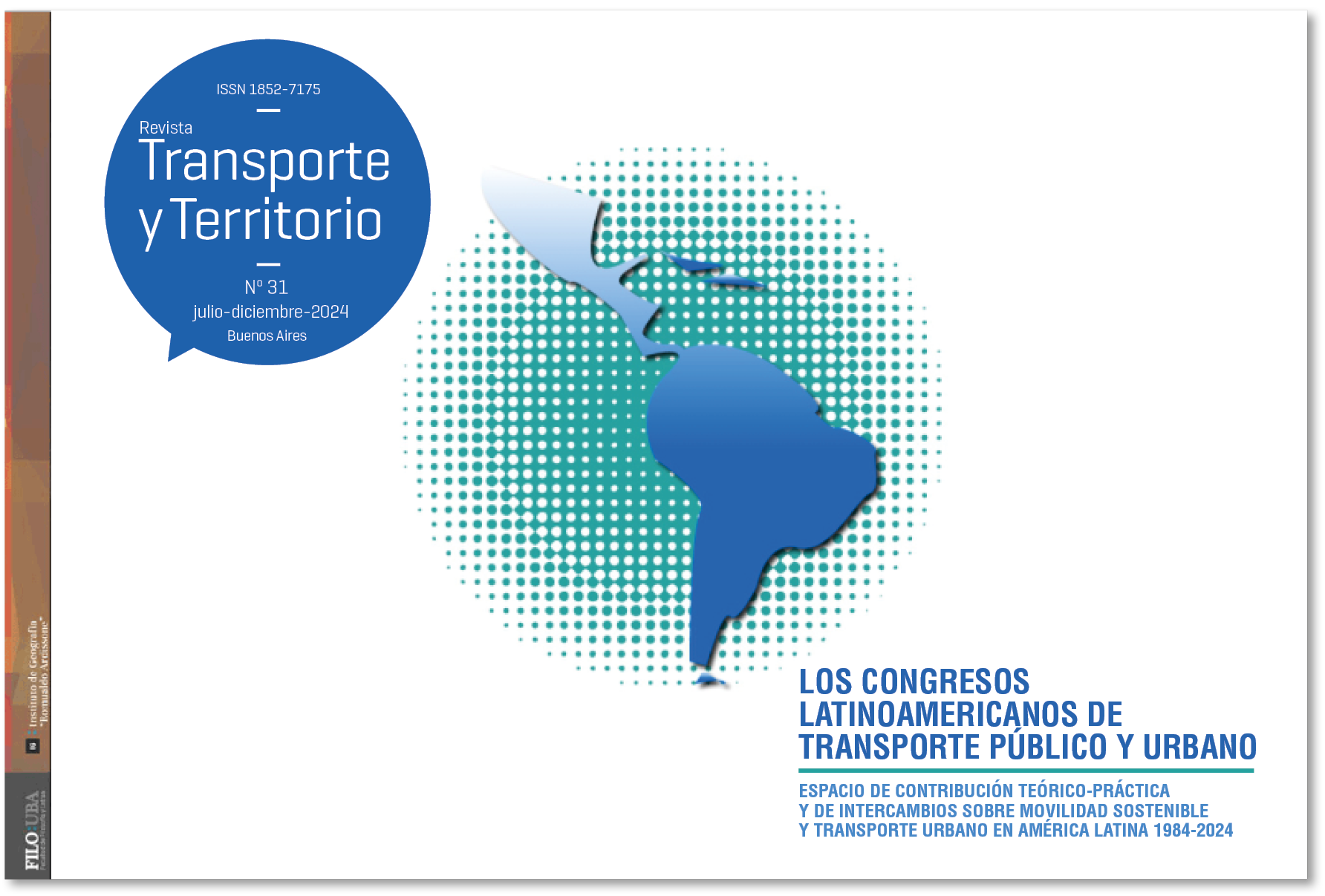Proposition of a bikeability index for Belo Horizonte (Brazil) through the vision of urban mobility specialists
Abstract
The urbanization process of Brazilian metropolises has been characterized by the predominance of motorized and individual modes of transport, generating serious mobility problems to this day. Belo Horizonte, capital of the state of Minas Gerais (Brazil), is an enlightening example of these processes, since the city has a significant lack of infrastructure to support active mobility, especially for cyclists. In this context, this article aims to adapt a bikeability index developed for Belo Horizonte, originally based on the perception of cyclists, but from the point of view of urban mobility specialists, in order to contribute to other theoretical studies and may serve as a basis for public policies based on its application in part of a Brazilian metropolis. Therefore, questionnaires were used to identify these specialists’ perceptions of bikeability indicators, and evaluation criteria were then defined for each of them. The bikeability index was applied to the region known as the Hipercentro of Belo Horizonte and, based on the results obtained, the study area was rated poorly, indicating the need for various improvements in this area of the city, especially in terms of road infrastructure.Downloads
Copyright (c) 2025 Isabella Fernandes Cardoso, Leandro Cardoso, Gabriel Teixeira Lacerda, Ryane Moreira Barros , Maria Lígia Chuerubim, Daniela Antunes Lessa, Vinicius de Castro Botelho Lanza, Daniel Freitas Caputo Oliveira

This work is licensed under a Creative Commons Attribution 4.0 International License.

1.jpg)

3.png)























